Although Donald Trump has a serious amount of political decorum to learn before inauguration day, he might already have answers to benefit the sharing economy in the four years to come.
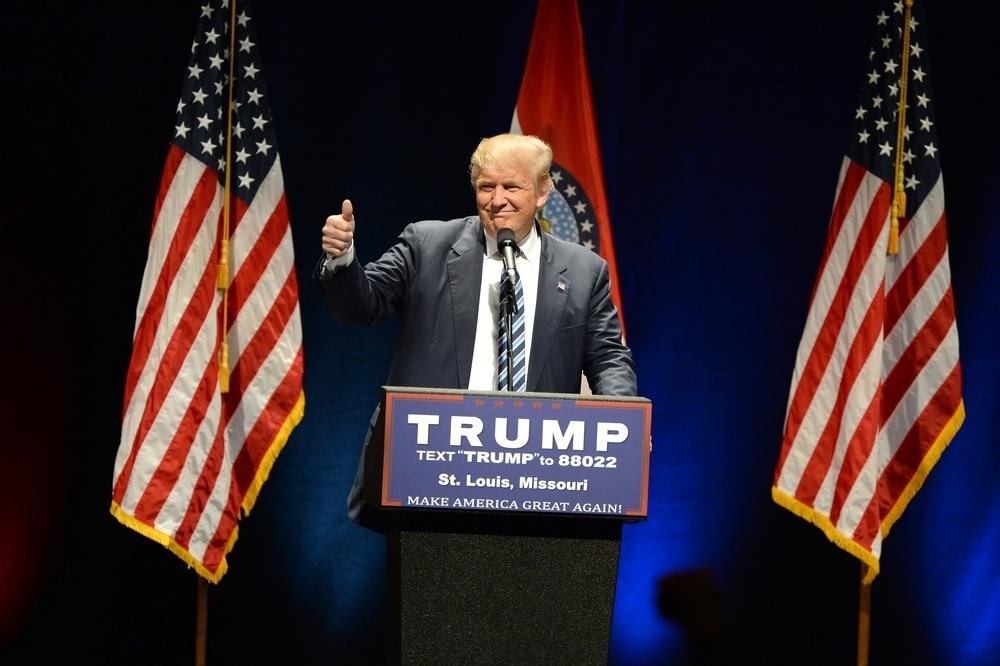


Although Donald Trump has a serious amount of political decorum to learn before inauguration day, he might already have answers to benefit the sharing economy in the four years to come.



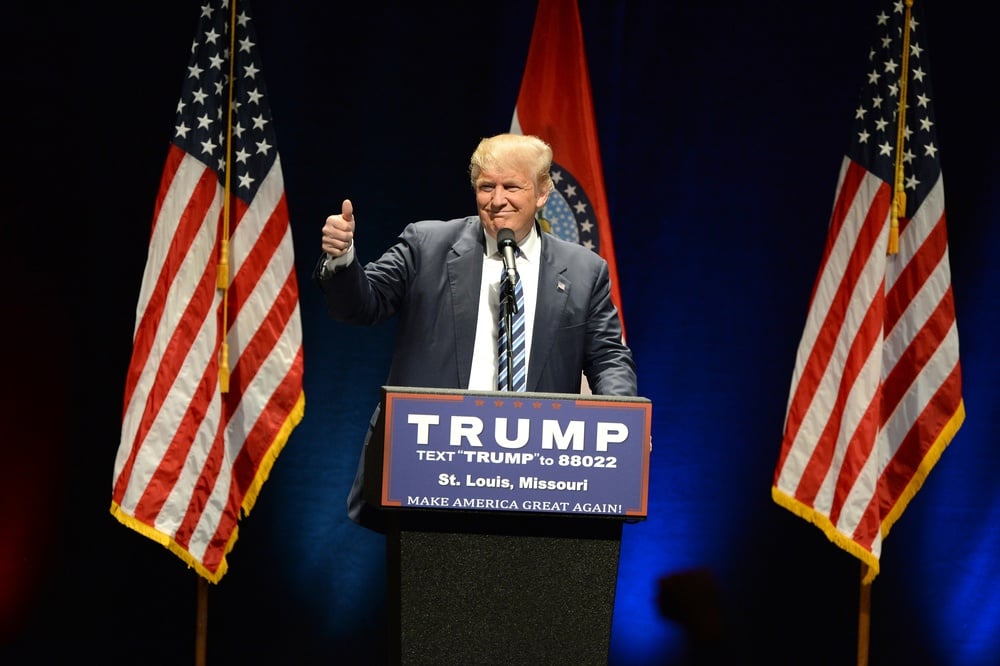
Although Donald Trump has a serious amount of political decorum to learn before inauguration day, he might already have answers to benefit the sharing economy in the four years to come.
The Republican Party had a very hard time agreeing on anything during the election, but one of the things they did agree on was the value of the sharing economy. The GOP website had this to say about the party's platform stance:
"We want government to encourage the sharing economy and on-demand platforms to compete in an open market, and we believe public policies should encourage the innovation and competition that are essential for an Internet of Things to thrive."
The GOP approach is good news for the 45 million Americans who work for or list service through on-demand platforms.
Did the sharing economy help Trump's election?
The worldwide adoption of neoliberal economic policies has allowed Donald Trump's kind of politics to gain traction. Neoliberalism privatizes risk and emphasizes personal responsibility, resulting in a shift of control from the state to the market.
Global economic forces have driven citizens into higher freelance work agreements and forced them to realign politically. The majority of Americans, even self-identified Democrats and liberals, prefer a light regulatory touch when it comes to the sharing economy. Voters have decided that they believe Trump's populism, fueled by perceived threats to liberty and job security, will ensure the sharing economy continues its current path.
How did the sharing economy affect swing state voting?
A survey conducted by David Binder Research showed a high percentage of millennial support for the sharing economy and Airbnb in swing states. The study also found 83% of millennial likely voters consider it important that the candidate they support for President embraces innovation.
Here's what Airbnb's support looks like on the map:
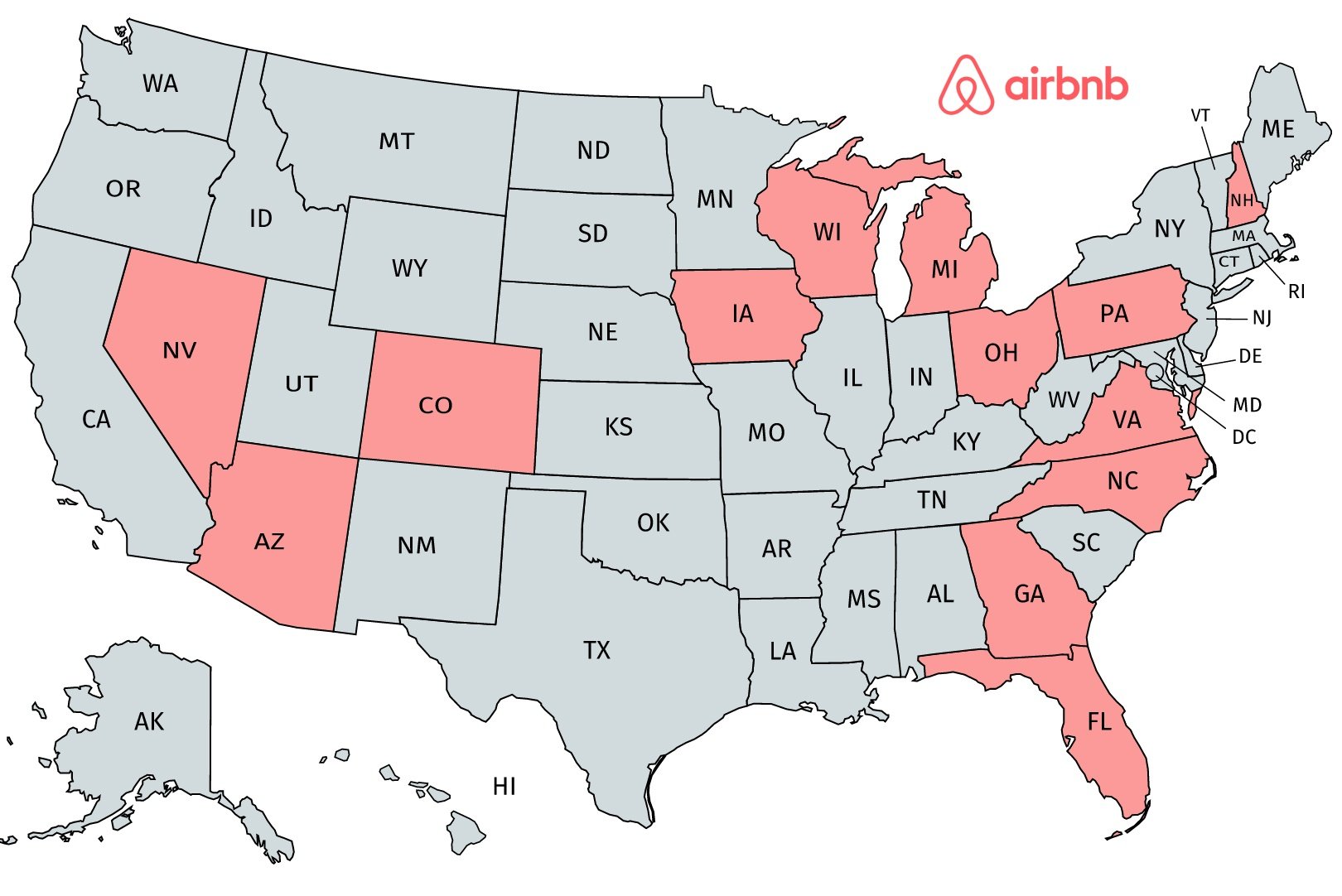
In an article for Forbes, John Kartch shows Uber has 683,000 drivers and 21,483,000 riders nationwide using their platform as of September, 2016. Many happen to reside in swing states.
Here's what Uber's research looks like on the map:
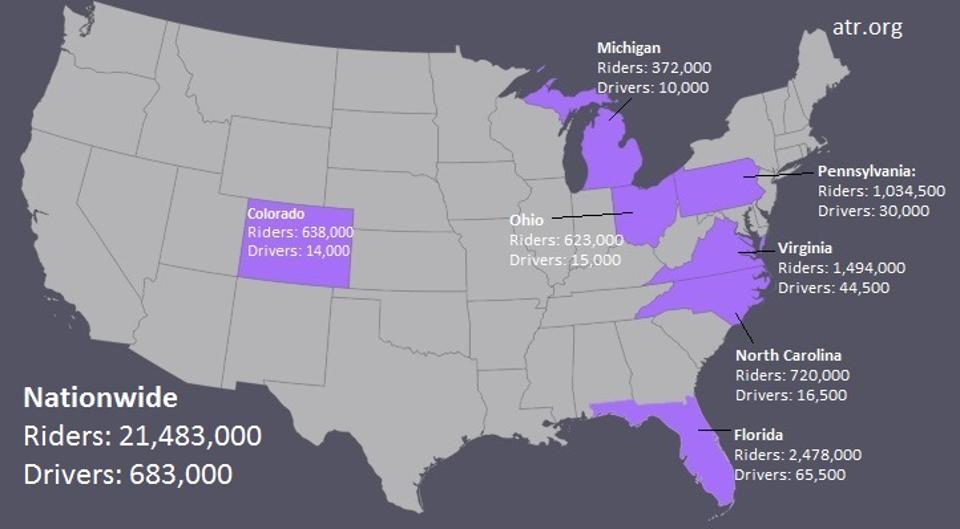
Here's the breakdown of actual swing state votes:
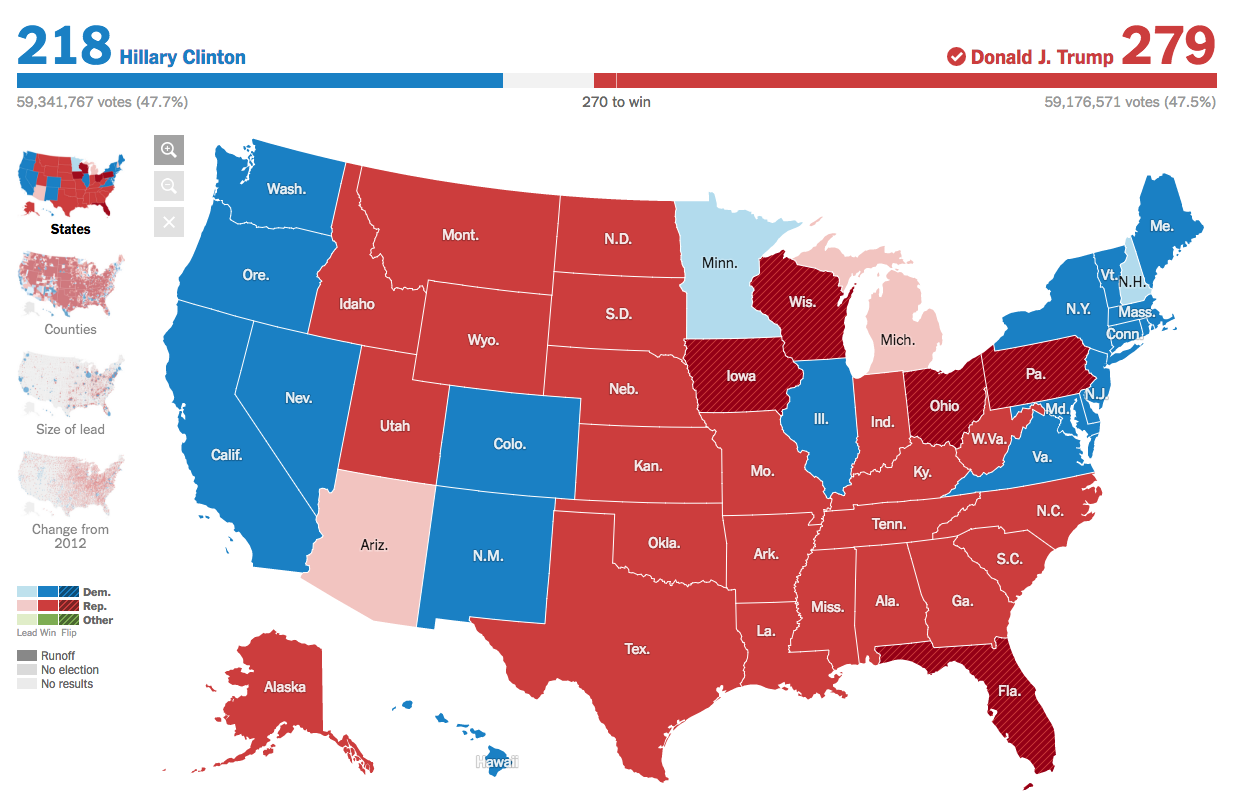
By comparing the data, It's not farfetched to think that sharing economy supporters factored into the Trump vote in key swing states.
As President, Donald Trump has claimed he will eliminate job-killing regulations to protect American workers. With 40% of workers now having contingent jobs, limiting regulations will help the sharing economy continue to add value to the US workforce.
Trump has proposed lowering the corporate tax rate to 15% for all businesses, which would include independent contractors. Under his tax plan, workers that make over $50,000 would be taxed at either 20 or 25%. However, that same person would only owe a 15% tax rate as an independent contractor.
We must remember that peer-to-peer services have found a way to disassociate from traditional economic principles of scarcity. Over-regulation to the sharing economy would destroy jobs that many people depend on. Whether or not you believe in Trump as a sound leader, his policies actually seem to promote a thriving contingent workforce.
How do you feel about the election outcome? Leave a comment and let's discuss!
Ensure your project’s success with the power of platformOS.